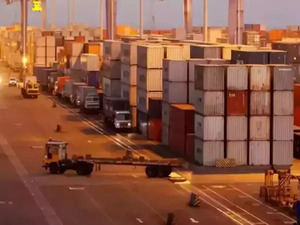The DESH Bill
~Preet

sez.jpg This image does not belongs to the writer or publisher this image was found on https://economictimes.indiatimes.com/news/economy/policy/partial-denotification-of-sezs-single-window-clearance-mechanism-in-desh-draft/articleshow/92396526.cms
During the forthcoming monsoon session of Parliament, the government intends to introduce the Development of Enterprise and Service Hubs (DESH) Bill. It intends to revitalise interest in SEZs and establish more inclusive economic centres by overhauling the existing Special Economic Zone regulations from 2005. SEZs will be renamed Development Hubs and will be exempt from many of the rules that presently limit them. These hubs will serve as both domestic tariff areas and SEZs, facilitating both export-oriented and local investment. To bring taxes in line with those imposed by units outside the country, the government may apply an equalisation levy on products or services supplied to the domestic market.
The World Trade Organization's dispute resolution panel decided that India's export-related programmes, particularly the SEZ Scheme, were in violation of WTO norms since they directly connected tax breaks to exports. Direct export subsidies are not permitted because they might affect market prices. SEZs began to decline with the implementation of a minimum alternative tax and a sunset provision to eliminate tax breaks. SEZ units used to get a 100% income tax exemption on export income for the first five years, a 50% exemption for the following five years, and a 50% exemption on ploughed-back export earnings for another five years.
Beyond increasing exports, it aims to encourage local industry and job creation through 'development centres.' These hubs will no longer be needed to be net foreign exchange positive cumulatively in five years (i.e., export more than they import), as required under the SEZ system, and will be able to sell more readily in the local market. As a result, the hubs will be WTO-compliant. The DESH law calls for an online single-window system to issue time-bound permissions for the establishment and operation of the hubs. Companies can sell in the domestic market while paying tariffs solely on imported inputs and raw materials rather than the finished product. In the current SEZ regime, duty is paid on the final product when a product is sold in the domestic market. Furthermore, unlike SEZs, there is no mandatory payment requirement in forex. State boards would be set up to oversee the functioning of the hubs. They would have the powers to approve imports or procurement of goods and monitor the utilisation of goods or services, warehousing, and trading in the development hub. The commerce department at the Centre made the majority of decisions under the SEZ regime. States may now participate and even make ideas for development centres straight to a central board for approval.
Comments
Post a Comment